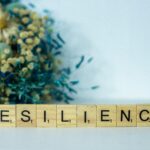In a world that never seems to stop, where every minute is packed with tasks, deadlines, and endless to-do lists, the idea of doing nothing can feel downright radical. Yet, beneath the relentless buzz of productivity and the constant chase for achievement lies a powerful truth: sometimes, the most courageous act is simply to pause. Embracing stillness is not about laziness or wasted time; it’s about giving yourself permission to breathe, to rest, and to reconnect with who you truly are-without a shred of guilt. If you’ve ever felt that tug of anxiety the moment you slow down, this article is a gentle invitation to rethink what it means to do nothing, and to discover the healing magic that happens when you simply… are.
The Power of Pause Understanding the Emotional Benefits of Doing Nothing
In a world that glorifies constant movement and productivity, allowing yourself moments of stillness can feel revolutionary. These pauses are not empty voids but rather fertile spaces where emotions can settle and self-awareness blooms. When we grant ourselves permission to simply be, without the pressure to achieve or perform, we tap into a profound emotional reset. It’s in these quiet interludes that stress dissipates and the mind unclutters, offering clarity and renewed emotional resilience.
Embracing these pauses brings incredible emotional benefits:
- Reduced anxiety as the mind finally gets a break from relentless stimulation.
- Heightened emotional intelligence through mindful reflection.
- Stronger connection to your inner self, fostering compassion and patience.
- Improved mental clarity that enhances decision-making and creativity.
By redefining our relationship with doing nothing, we reclaim the power of pause-not as a sign of laziness, but as a vital emotional nourishment. It’s a gentle reminder that our worth isn’t solely measured by our output but by our capacity to be present, fully human, and emotionally grounded.
Overcoming the Guilt Barrier Releasing the Pressure to Be Constantly Productive
In a culture that glorifies hustle and productivity, the nagging voice of guilt often shadows moments of stillness. But guilt is simply a sign that we’ve bought into a false narrative-that our worth is directly tied to how busy or productive we are. Reclaiming your time means challenging that lie and recognizing that doing nothing is not a failure; it’s a vital act of self-care. When you allow yourself to pause, you create space for creativity, healing, and deeper connection with yourself beyond the endless to-do lists.
Break free from the pressure by embracing small, guilt-free practices that honor your need for rest and presence. Try:
- Setting a daily “no-work” time, even if it’s just 10 minutes
- Celebrating moments of quiet without distraction
- Reminding yourself that your value lies in your existence, not your output
- Journaling about how guilt surfaces and consciously releasing it
These acts, simple yet profound, don’t erase responsibility-they humanize it. By releasing guilt’s grip, you cultivate a gentler relationship with yourself, nourishing your soul in ways productivity never can.
Creating Your Sacred Space Simple Rituals to Embrace Stillness Daily
Transforming a corner of your home into a sanctuary fosters a profound connection to stillness. Begin by selecting a quiet nook or an area bathed in natural light, then personalize it with objects that evoke peace and grounding. This could be a soft cushion, a cherished crystal, or even a simple candle whose gentle flame invites calm. Remember, the magic lies not in extravagance, but in intention. Each item should whisper serenity, beckoning you to pause and breathe deeply, anchoring you firmly in the present moment.
Simple rituals can gently signal your mind to transition into a state of stillness. Consider these easy yet powerful practices to weave into your everyday life:
- Beginning with a few mindful breaths, consciously releasing tension.
- Lighting incense or essential oils that transport you to a place of inner quiet.
- Journaling brief reflections, allowing thoughts to flow without judgment.
- Sitting silently for a minute or two, observing without needing to act.
Embracing these moments regularly not only cultivates inner peace but also honors the sacredness of doing nothing-free from guilt or distraction.
Mindful Techniques to Cultivate Calm Transforming Idle Moments into Healing Breaks
In the fast-paced whirl of daily life, embracing moments of stillness doesn’t just offer a pause-it gifts your mind a sanctuary. Transform those fleeting intervals where you feel “idle” into opportunities for profound restoration. Deep breathing exercises like diaphragmatic breaths or the simple “4-7-8” technique bring immediate calm, slowing the heart rate and clearing mental fog. Complement these breaths with gentle body scans, tuning into sensations without judgment, allowing stress to unravel silently. Such practices anchor you in the present, reminding you that doing nothing is an act of radical self-care, not laziness.
Other subtle yet impactful methods include:
- Mindful observation: Focus intently on a natural element-a leaf rustling, a cloud drifting. Witnessing its details cultivates stillness within.
- Gratitude glimmers: Mentally note small, serene moments from your day, weaving peace into the fabric of your idle time.
- Gentle stretches: Slowly elongate muscles, syncing movement with breath to melt tension and invite tranquility.
These practices transform what feels like “wasted” time into sacred pockets of healing, enriching your emotional resilience while nurturing a soothing inner calm. Learning to honor these moments frees you from guilt, replacing it with peace and self-compassion.
Final Thoughts
In a world that never seems to slow down, embracing stillness can feel like a radical act-a gift we give ourselves. Letting go of the constant urge to be productive, to fill every moment with action, opens the door to a deep, nourishing peace. Remember, doing nothing isn’t a void to be feared or filled; it’s a space where your mind can breathe, your heart can heal, and your soul can simply be. So next time you sit in quiet, don’t reach for that guilt or pressure-welcome stillness as a powerful form of self-care. Because sometimes, the most meaningful thing you can do is nothing at all.
















